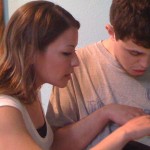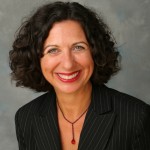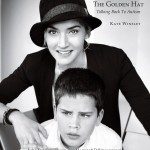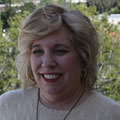 This blog post was contributed by: Pam Anderson, Indiana Resource Center for Autism; Kim Davis, Indiana Resource Center for Autism; Cristina James, Riley Child Development Center; Katy Messuri, Easter Seals Crossroads; Leanne Suarez, Sonya Ansari Center for Autism at Logan.
This blog post was contributed by: Pam Anderson, Indiana Resource Center for Autism; Kim Davis, Indiana Resource Center for Autism; Cristina James, Riley Child Development Center; Katy Messuri, Easter Seals Crossroads; Leanne Suarez, Sonya Ansari Center for Autism at Logan.
Taking your son/daughter on the autism spectrum to the dentist poses many challenges. This article hopes to make you aware of some of these challenges prior to your first visit, as well as provide some useful ways to deal with them. Included in this article are three main areas that are most often in need of attention: preparation, sensory issues and communication.
Preparation
When seeking a dentist, call the office and discuss your son/daughter’s needs.The more you know ahead of time about their practices and why they do them, the more comfortable you will be.Ask if they have experience with children who have an autism spectrum disorder (ASD) and if they have special procedures in order to optimize each visit.Ask about those procedures.Some procedures you might ask about are:accompanying your son/daughter in the room while doing the exam; having an appointment at a time of day when your son/daughter is at his/her best; having a short wait time; and having the same staff at each visit for consistency.If you’re not comfortable with the answers to your questions, consider another dentist.Some dentists may refuse to treat your son/daughter because they’re unsure how to make them comfortable.
Is your son/daughter accustomed to daily tooth brushing? If not, consider working with an occupational therapist (OT) or an autism or behavioral professional to teach the child good oral hygiene habits. Use of visual routines and a timer are helpful for good daily brushing habits.
Use their toothbrush or a plastic tooth mirror (available at local pharmacies) and get your child use to letting you put it in his/her mouth.Make a fun game out of counting their teeth.Vibration toys that are safe for oral use, or even electric toothbrushes, are also excellent for getting your child use to the strange sensations in their mouths.
One of the most effective preparatory steps you can take is to create and read a social story about going to the dentist with your son/daughter.The social story should take the uncertainty out of what will happen at the dentist office.Be sure to highlight things that you think your child will like or be concerned about.A social narrative, “Going to the Dentist” is listed in the “Resource” section of this article.Another idea is to include an incentive/motivator for when the appointment is over.Does the dentist have a prize basket?Can you stop for a treat afterwards?There are many good books about practicing good oral hygiene and going to the dentist that you can read with your child.A resource guide for helpful books is included at the end of this article.
To get your son/daughter off to the right start with a dentist, schedule a few short “happy visits” to start off with.Keep these visits very positive and short.Let your son/daughter get use to the office environment; try out the chair; let the hygienist look in their mouth or count their teeth, and listen to the sound the drill makes.These may not all happen on the same visit.Use these visits to slowly desensitize your son/daughter to the experience, as well as discover what could potentially be difficult at future visits.
Sensory Issues
There are many potential sensory challenges at a dentist’s office – tastes, smells, textures, sounds, lights and proprioceptive. Knowing in what areas your son/daughter tends to be sensitive will help you know what coping strategies to try.Share your son/daughter’s coping strategies with the dental staff before the visit.Collaboration and teamwork are essential for a successful trip to the dentist.
To be comfortable with the doctor’s chair, you may want to ask the hygienist to lean the chair back before your son/daughter gets in it, as sometimes they don’t like the feeling of being moved backwards.Also, try using a bean bag chair in the dentist’s chair during the exam to provide some snug comfort.Deep pressure can be used before and during the visit for calming.Consult your son/daughter’s classroom teacher or OT for suggestions.Wearing the x-ray vest may be similar to wearing a weighted vest.This can be discussed with the dental staff prior to the visit, too.
Consider a heavy work task to be done before and after the visit for calming.Let your son/daughter stretch a therapy band in their hands, or even wrapped around their ankles while they are in the chair.Lighting in a dental office is often too strong for children with autism.Let them wear sunglasses and request that the staff try to keep the light out of their eyes as much as possible.Night time eye covers can be used, but will make it difficult for the staff to show your son/daughter what they are going to do.If the noises of the office are upsetting, request to be moved to a more quiet or private area.If not available, the use of headphones or an iPod/music player are good ways to limit noise.To ensure that tastes are familiar and favorable, bring your son/daughter’s own toothpaste and toothbrush to the visit.
Communication
For a child who may not be able to verbalize or recognize a problem, the accompanying feelings of anxiety and frustration can be overwhelming.The impact of these feelings on behavior can be significant.Having a dental professional who can communicate effectively will be very important.Below are some tips to improve communication at the dentist office.
Tell/Show/Do.This is a shorthand way to explain to staff what they should do. First, Tell your son/daughter what they are going to do. Next, Show the tool or action they are going to use (let your son/daughter touch the tool, if possible).Then, Do only after they’ve done the other two.This verbal preparation and demonstration will help eliminate some uncertainty for your son/daughter and put them more at ease.
- Modeling is very effective for some children.Bring along a sibling or friend and letyour son/daughter with ASD watch as the doctor or hygienist performs the task on them first.
- Letting the child know ahead of time how long something is going to last can be very helpful.Instruct the staff to prompt the child with time durations as they work.Some examples:“This will be all done when we finish counting to 10.”“I need to touch 20 teeth… help me count them all.”“That gritty cleaner will only be there for 1 minute and then you can rinse and spit it out.”
- Instruct the staff that your child responds best to immediate praise for good behavior.When your child does something they want, staff should not delay their praises.This will help your child make the connection between what he/she does and the consequences.Some examples:“Great job keeping your mouth open.”“I like how you are …”“You did great while I cleaned the front of your teeth, now I’m going to clean the back of them.”
- Ignoring inappropriate behaviors is also something you’ll want to inform the staff about.Have them try to ignore inappropriate behaviors as much as they can.Maintaining a calm voice may help to minimize behavior problems.
Other Issues
There are some unique dental issues that you will want to discuss with your dentist, if they apply to your son/daughter.For those who engage in bruxism (grinding their teeth) or self-injurious behaviors (such as picking at the gums or biting their lip) a mouth guard might be recommended so long as it is tolerated by your son/daughter.Dentists should also review your child’s medications and/or supplements.They will then be able to advise whether medications are affecting saliva production or if they contain a lot of sugar, both of which will increase the chance of cavities.
Seizures may accompany autism, and if your child has seizures you will need to discuss this with your dentist.The mouth is always at risk during a seizure; children may chip teeth or bite their tongue or cheeks.The dentist should be able to help you develop a treatment plan for these challenges.Be prepared to manage a seizure if one occurs during the dental visit.Instruct staff to remove any instruments from the mouth and clear the area around your child.A simple trick is to attach dental floss to rubber dam clamps or mouth props before putting them in so that you can remove them quickly if needed.
Sedation is sometimes used with patients, usually in cases where the child has high levels of anxiety or discomfort that prevent good coping skills, for those with uncontrolled movements (including gagging), or for those requiring extensive dental treatment.Sedative medications cause most children to become relaxed and drowsy.Unlike general anesthesia, sedation is not intended to make a patient unconscious or unresponsive.You and your dentist should select a technique based on the specific needs of the child and discuss the benefits, limits and risks of that technique.Your son/daughter may be referred to a hospital for extensive procedures to be done under stronger sedation or general anesthesia.
If you have any dietary or chemical restrictions that you are following for your child, be sure to make your dentist aware of these before the appointment begins.They need to know up front what your expectations are so that they can attempt to work within your guidelines.
Financial Access to Dental Services
Families without health insurance and those with health plans that do not cover dental care may be able to benefit from a wide variety of programs to ensure that they have access to the care they need.Before you investigate using services that provide dental care, it is wise to check if you qualify for any public or private health coverage plans that would provide dental care.
If your child is covered under Hoosier Healthwise (Indiana’s Medicaid program), dental services are a covered service.In Indiana, this coverage is limited to $600 per recipient per 12-month period, except for surgical and periodontal procedures.One topical fluoride application is covered every 6 months per recipient for patients from 18 months to 19 years of age.You can search for a dentist that accepts Medicaid near you at www.indianamedicaid.com.
Families who have private health insurance coverage may have dental coverage as part of the plan benefit.Some employers offer separate dental coverage that employees can opt to buy.Families are encouraged to seek out information about what benefits are available and procedures for obtaining authorization of services.Your employer, human resources department or plan administrator are key sources for this type of information.
A variety of clinics, programs and organizations provide dental services to children and adults in Indiana who do not have dental coverage and cannot afford standard fees.Each program has different eligibility criteria.To find options near you consider the following:
- Many Community Health Centers provide dental services.For a list of community health centers go to:http://www.in.gov/isdh/files/CHC_and_maps_GIS_08.pdf.
- Dental schools can be a good source of quality, reduced-cost dental treatment.The Indiana University School of Dentistry offers services for fees that are generally 1/3 less than a typical dentist practice.Contact: IU School of Dentistry, 1121 W. Michigan St., Indianapolis, IN46202-4186, Phone: 317-274-7461.
- The Bureau of Primary Health Care supports federally-funded community health centers across the country that provide free or reduced-cost health services, including dental care.To obtain a list of centers in your area, contact the HRSA Info Center at 1-888-ASK-HRSA (1-888-275-4772) or www.hrsa.gov
- Each year the Indiana Dental Association hosts the Give Kids a Smile Day.During this one day event (in early February) dentists across Indiana open their offices to donate dental care to children from low-income families.There are requirements that must be met.Appointments are required.Information about scheduling an appointment can be found at www.indental.org between October and December each year.
Conclusion
Taking your son/daughter to the dentist presents challenges for both the parent/caregiver and the dental office staff.By working together, challenges and anxiety can be reduced.Using ideas presented in this article, the child with ASD may have a better understanding of what to expect when he/she visits the dentist for the first time and may have a greater chance of experiencing a successful dental visit.
References
American Academy of Pediatric Dentistry. (n.d.)Sedation. From http://www.aapd.org/publications/brochures/sedation.asp
Bennie, M.(n.d.) Dental Dilemma.from Autism Today website:http://www.autismtoday.com/articles/DentalDilemma.htm
DynaVox Mayer-Johnson, 2100 Wharton Street, Suite 400, Pittsburgh, PA 15203;
Phone: 800-588-4548,Fax: 866-585-62620; Email: mayer-johnson.usa@mayer-johnson.com; Website: www.mayer-johnson.com
Indiana State Department of Health, Sunny Start Initiative.(2009, April 20).Dental Care: Options to Access Dental Services.From:
http://www.earlychildhoodmeetingplace.org/family.lasso?-token.corralexec=article_detail&-token.article_id=11893&-token.section=Resource_Fact_Sheets
Mabry, C. et al. (2008) Special Care Dentistry for the General Practice Resident: Practical Training Modules [PowerPoint Slides].Retrieved from NYS Office of Mental Retardation and Developmental Disabilities website:http://www.omr.state.ny.us/images/hp_dentistry_treatment.pdf
Miller-Kuhaneck, H.(n.d.).Going to the Dentist.from the Sensory Processing Disorder Foundation website:http://www.spdfoundation.net/library/dentist.html
National Institute of Dental and Craniofacial Research, National Institutes of Health.(2009, July 14).Practical Oral Care for People With Autism.From http://www.nidcr.nih.gov/OralHealth/Topics/DevelopmentalDisabilities/PracticalOralCarePeopleAutism.htm
Oakley, D.(2009, August 28).Autism and Dentistry: Dental Challenges for Families and Treating Dentists. The Autism News website:http://www.theautismnews.com/2009/08/28/autism-and-dentistry-dental-challenges-for-families-and-treating-dentists/
Resource List – Dental Visit
Books for Children/Students – Dental Visit
Books for Parents/Professionals – Dental Visit
Videos/Photographs – Dental Visit
Social Narrative – Going to the Dentist
Visual Support Schedule – Visiting the Dentist
 Robert Naseef, PhD specializes in guiding families of children with disabilities at Alternative Choices in Philadelphia.. He is the author of Special Children, Challenged Parents: The Struggles and Rewards of Raising a Child With a Disability and Autism in the Family: Caring and Coping Together.
Robert Naseef, PhD specializes in guiding families of children with disabilities at Alternative Choices in Philadelphia.. He is the author of Special Children, Challenged Parents: The Struggles and Rewards of Raising a Child With a Disability and Autism in the Family: Caring and Coping Together.









